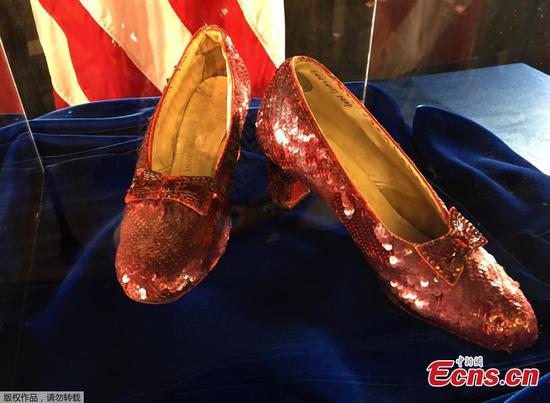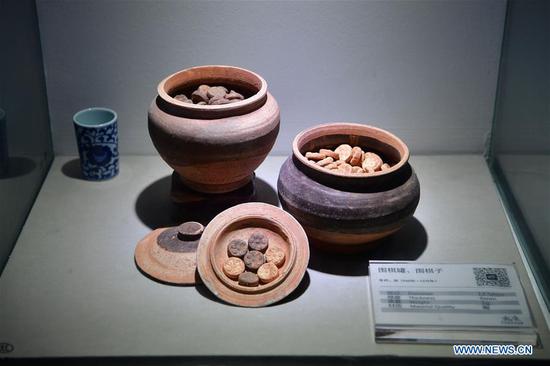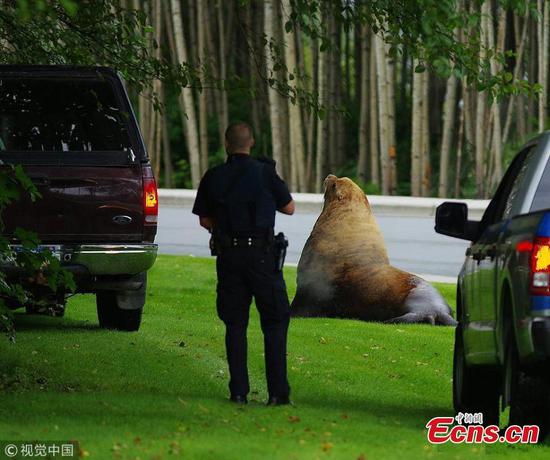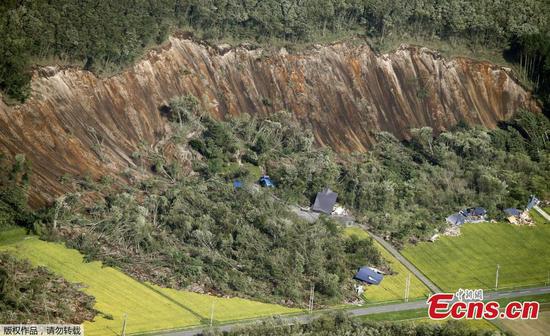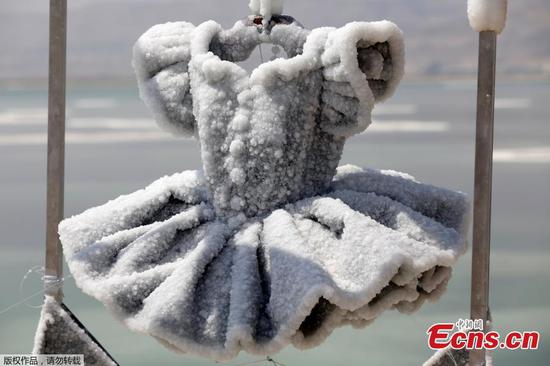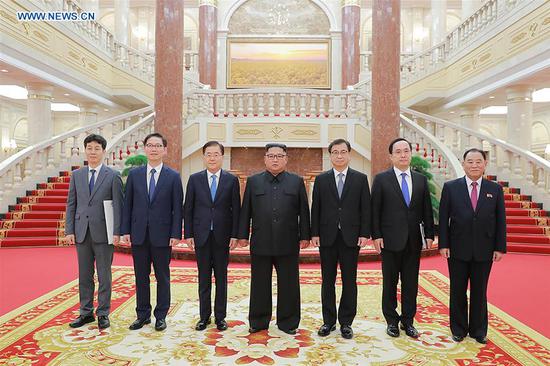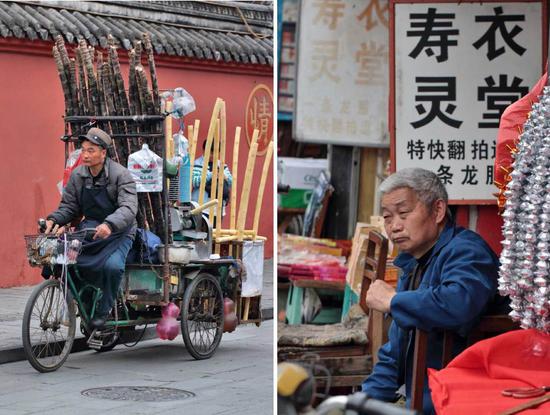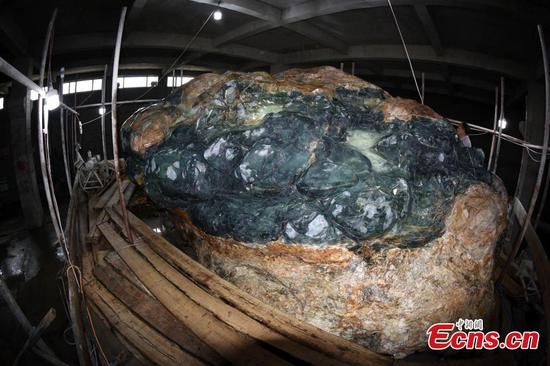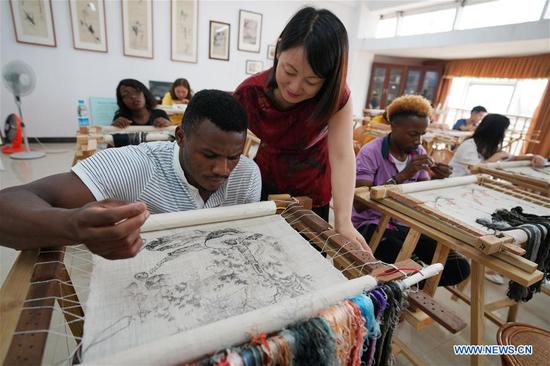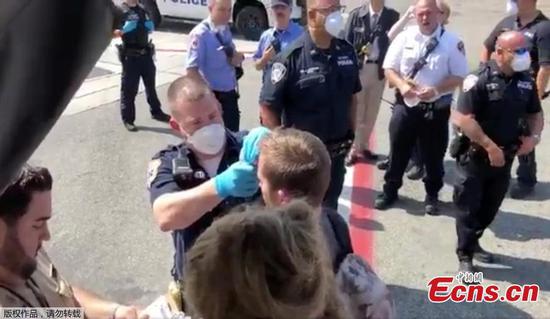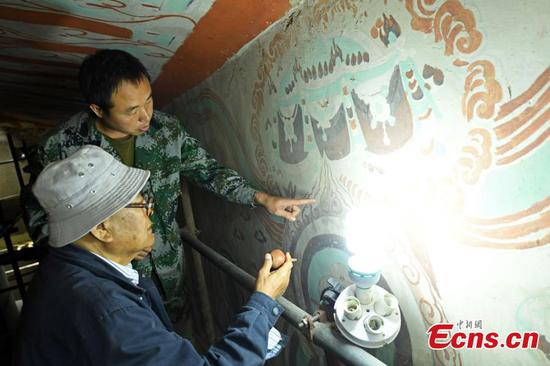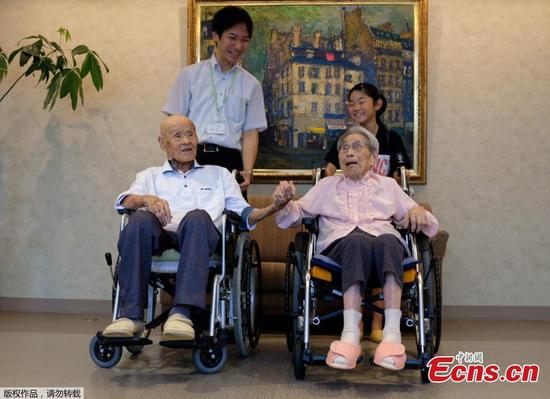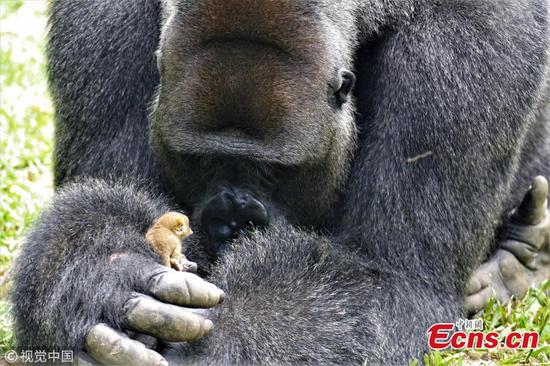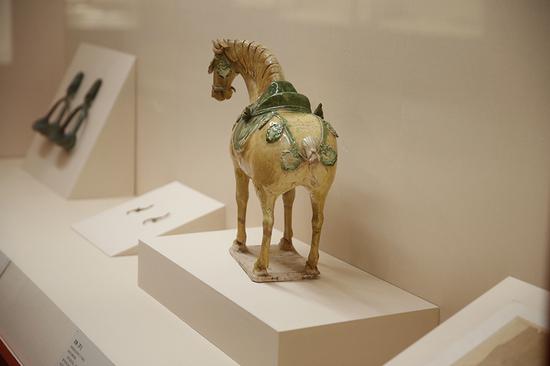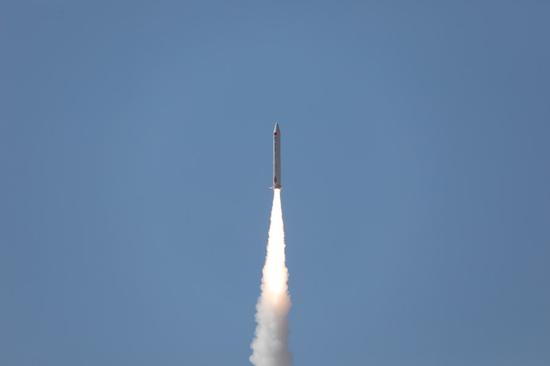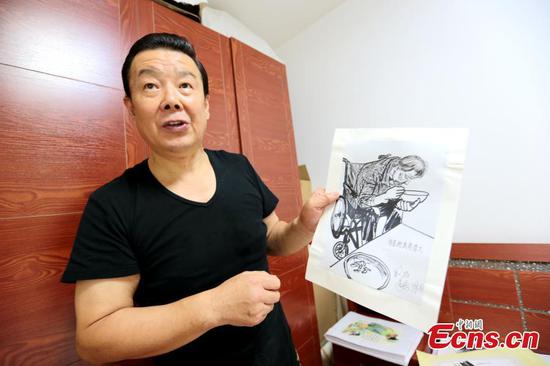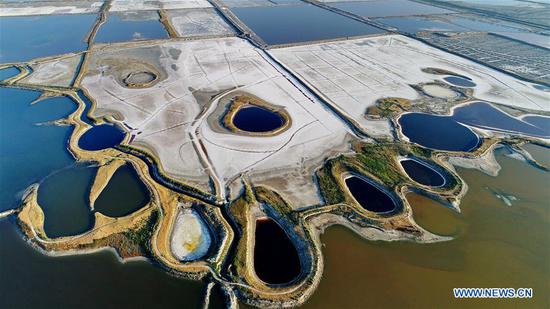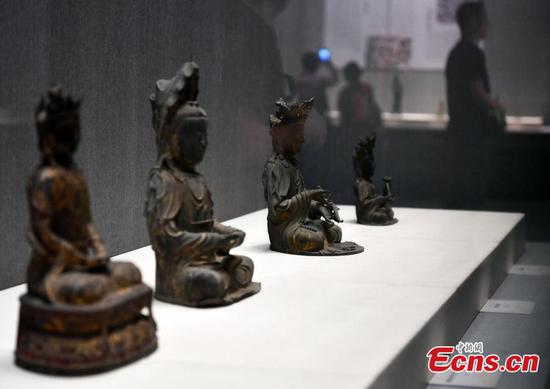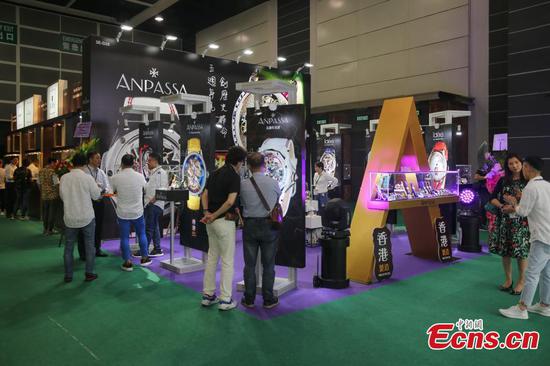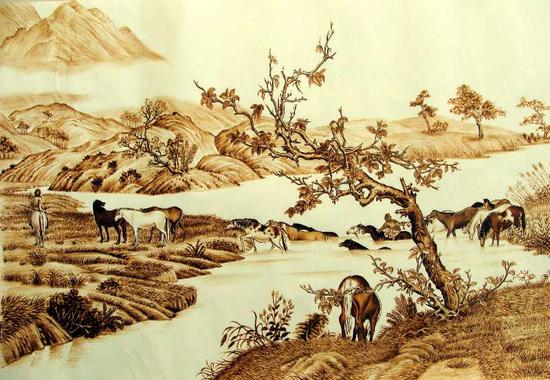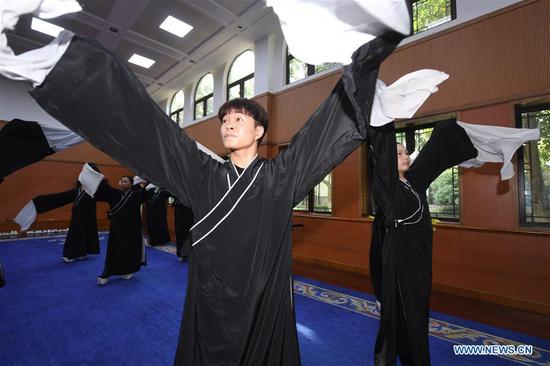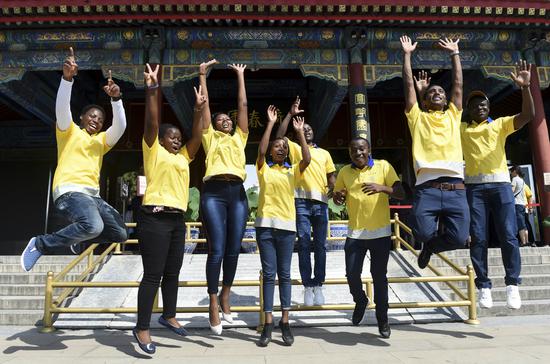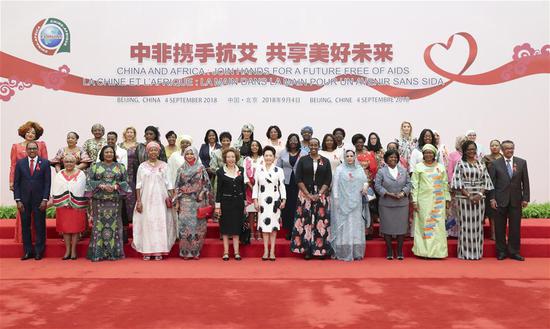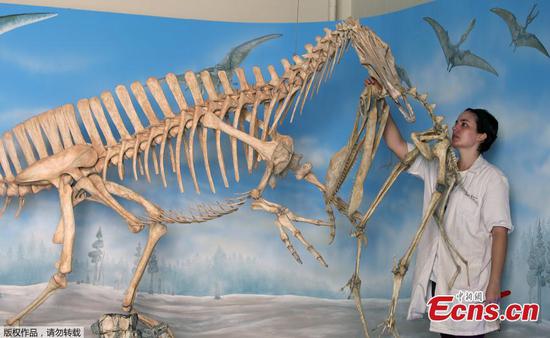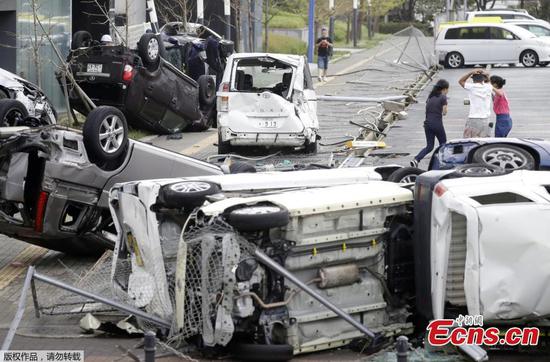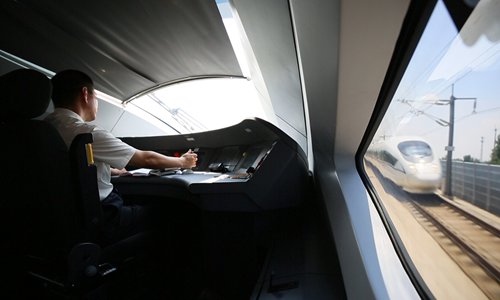
Xue Jun drives a bullet train. (File photo/Courtesy of China Railway Corp)
Railway workers recap train development since reform of 1978
Railway workers at Ji'nan West High-speed Railway (HSR) Station, a key stop along the Beijing-Shanghai HSR line, share with the Global Times a personal account of the Chinese railway industry's development during the four decades following China's reform and opening-up in 1978. From an underdeveloped industry to a world-leading public service, the industry is developing fast and laying solid foundation for China's economic growth. Achieving profitability only six years after its launch, the Beijing-Shanghai line is the world's fastest railway line in commercial operation.
Rising up from a smart mattress, 51-year-old Xue Jun turns to a monitor that records the quality of his night's sleep.
After the monitor produces a detailed brief on how many flops he turned during the night, his blood pressure and heartbeat, his physical readiness as a train driver is confirmed.
Dressed up in uniform wearing a smart captain's hat, he waits patiently for a car to pick him up and take him to work - the cockpit of the world's fastest bullet trains.
That's how a day starts for Xue, a driver of the Fuxing electric multiple unit (EMU) trains, China's bullet train for the New Era.
Different from most of his colleagues, Xue's career started in a seemingly archaic but not so distant past.
The driver
In 1986, at the beginning of his career, Xue was on a mission to learn how to balance himself inside a swaying steam locomotive cabin and shovel a spade of coal in a perfect swoop so that the fuel burned evenly inside the furnace of the train's boiler.
By 1994, Xue was occupied with mastering the art of electric engineering and how to work with diesel engines, as he had upgraded to become a driver for a diesel engine-powered locomotive.
In 2006, an electrification upgrade was successfully completed on the Beijing-Shanghai railway line. Xue soon learned how to operate an electric-powered locomotive, mastering the use of a pantograph and understanding insulation precautions to prevent injuring himself from a 270-kilovolt power line.
Xue told the Global Times that it was the pursuit of speed that got him this far.
When Xue obtained his license for the diesel locomotive in 1991, he thought that he was satisfied enough and that the license would be his "rice bowl for life." And then he encountered the bullet train.
In 2008, Xue was driving his electric train at a speed of 160 kilometers per hour near Huangcun, a railway stop in southern Beijing.
"Then, all of a sudden, flash and thunder! A bullet train passes by my train. In a moment's time, all I could see was the twinkling tail light of that train. In another moment's time, there was nothing but shimmering tracks," Xue told the Global Times on Wednesday inside a railway depot in Ji'nan, capital of East China's Shandong Province.
"Running this fast, it must feel really good," Xue said to himself.
It was then that Xue made the decision to be a bullet train driver. It would take him one year, many tests, interviews, a month of training sessions and one failure before he got what he wanted.
In 2009, after this rigorous training, Xue finally became qualified to drive China's bullet trains, the fastest trains in the country's railway system.
"When the bullet train was first introduced, there were so many people that yearned to just have a look at these trains, not to mention taking a ride. And I was driving it," Xue said.
Today, the EMU is a daily necessity for the Chinese.
In July and August alone, 393 million people traveled on EMUs, according to China Railway Corp.









